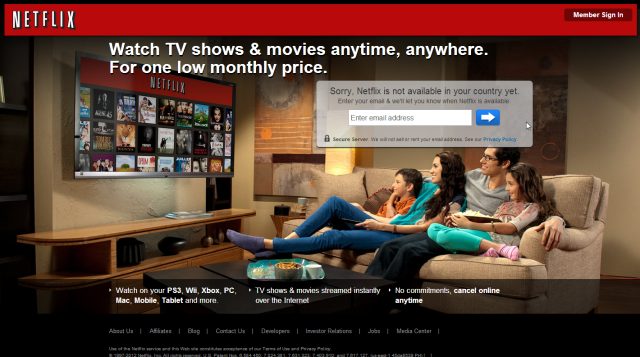
Last month, Ars wrote about the European Commission's announcement of plans to tackle geo-blocking and copyright reform in the European Union. However, there were almost no details of what that move would mean in practice. PoliticoEU has obtained two documents that provide more information on the European Commission's intentions: the Digital Single Market strategy itself, along with a rather longer supporting document called "Digital Single Market: The Evidence." But if you were hoping for plenty of concrete proposals, you'll be disappointed: the leaked documents are good on the general direction but often lack the all-important specifics.
On geo-blocking, the strategy document says, "The Commission will initiate action to put an end to unjustified geo-blocking." As to what that means, the document explains, "Geographically-based restrictions of supply and differentiations can sometimes be justified, for instance where the seller needs to comply with specific legal obligations or where costs associated with cross-border e-commerce (e.g. in terms of shipment) would be too high for certain types of companies."
That would seem to rule out geo-blocking based purely on territorial rights, something that the European copyright industries are keen to retain. However, another section of the Digital Single Market strategy document seems to speak of this kind of geo-blocking more positively: "These contractual practices reflect the central role of territorial exclusivity in the production and financing of audio-visual works (where large upfront investments are funded through the pre-sale of exclusive rights in certain territories)." But it then goes on to distinguish that situation from where "restrictions originate from contractual arrangements between right-holders and distributors (online service providers, broadcaster, etc.)"
Even the Commission's summary of its plans here leaves it unclear how the ban on geo-blocking will work. It says the new strategy aims to "facilitat[e] access to legally paid for cross-border services (e.g. allowing a resident of one Member State to access online content currently available only to residents of another Member State) while safeguarding the value of rights in the audio-visual sector." It's hard to see how those can be reconciled.
The copyright section includes a more concrete proposal to allow people to carry out text and data mining. These are increasingly important techniques that allow large collections of text and data to be combined and analyzed in order to look for interesting patterns within them—for example, parsing large numbers of (potentially copyrighted) academic papers to look for patterns. As the European Commission notes, their development is currently "hampered by the absence of a clear EU-wide legal framework," which has left researchers uncertain about whether they need to ask permission from copyright owners to do this. The Digital Single Market strategy calls for the revised copyright directive to clarify this situation.
However, no mention is made of many other areas that have been proposed for the revision of the copyright directive—for example, strengthening authors' rights, harmonizing copyright terms across the EU, making copyright exceptions mandatory, and explicitly allowing linking and audio-visual quotations.
There is an obvious attempt to win support from the copyright industries for moves they have opposed—such as ending geo-blocking and allowing text and data mining—by promising that "the need for a more effective and balanced cross-border civil enforcement system against commercial scale infringements of intellectual property rights will be addressed." The strategy document returns to this theme in the section on "Combatting illegal content on the Internet," which says: "Alternatives include legislative proposals to harmonise the procedures for removing illegal content across the EU or establishing additional responsibilities on online companies to monitor and verify the resilience of their systems against illegal content."
As for when the details of all these initiatives will be forthcoming, the strategy document's timeline expects an inquiry into geo-blocking to start this year, copyright reform proposals to come in "Autumn 2015," and the launch of an initiative leading to a "possible proposal for combatting illegal content on the Internet" to take place sometime in 2016. The official version of the EU's Digital Single Market strategy is due to be published by the European Commission on May 6.
reader comments
38